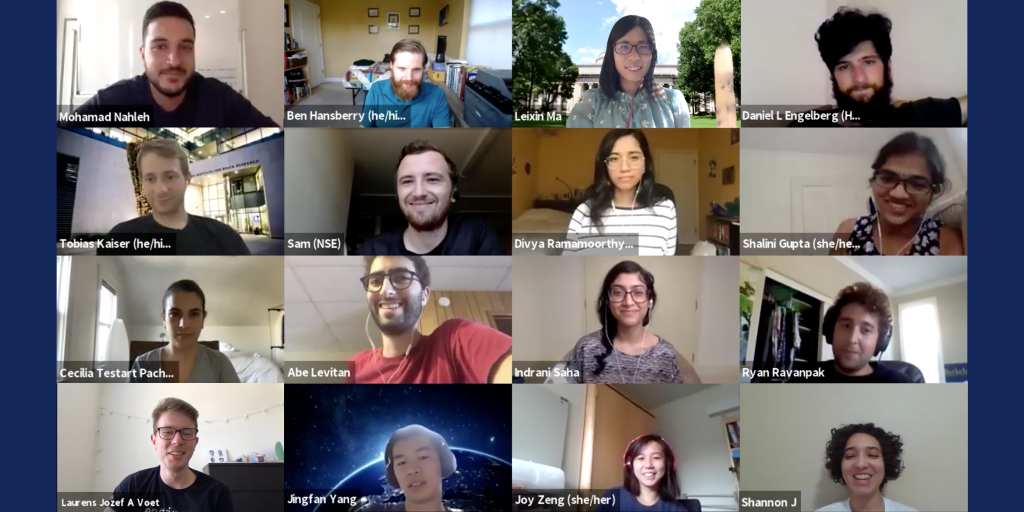Teaching Development Fellowship Network AY20-21

The Teaching Development Fellowship (TDF) Network launched in January 2019 after Benjamin Hansberry, Ph.D., Assistant Director for Graduate Student Teaching, joined the Teaching + Learning Lab.
The goal of the TDF Network is to provide relevant and discipline-specific training in teaching, as well as to build cultures of reflective teaching among graduate students across the Institute.
The program provides support for graduate students across the institute and can be an excellent leadership opportunity for the fellows, but, as Hansberry notes, it does this in a much more efficient way than other models: “I, or my colleagues, could go around from department to department running workshops for graduate students, but we can’t know the precise needs and teaching culture in each department or discipline. However, the graduate students themselves do know what the real needs are and best understand how to address those needs in their own departments.”
The Teaching Development Fellows of this academic year are striving to support their peers and departments in unprecedented times marked by remote learning and communication. “This year is particularly challenging for many students because they don’t get the face-to-face contact and support they need,” says Tobias Kaiser, the TDF representing the Brain and Cognitive Sciences Department. “I hope to provide TAs with tools so they can build similar rapport with students in this virtual world as they did before in person.”
For the 15 fellows representing 13 departments, joining the TDF Network has been a key opportunity for interdisciplinary collaboration and insights from outside their departments.
To address the challenges of physical separation, fellows are rebuilding a sense of community at a distance, beginning with their TDF Network. “This fellowship can connect students across departments with a shared interest,” says fellow Laurens Voet, representing the Department of Aeronautics and Astronautics. “Organizing events together, helping and giving feedback to each other, creates community.”
“It helps to escape the silos of our fields and departments by seeing that certain problems in the classroom or with teaching in general, as well as in our teaching assistantships, are universal,” says fellow Shannon Johnson, who represents the Media Arts and Sciences Program. “We can be more innovative when bringing departments together to test solutions.”
“One of the unique aspects of the network is that it brings together grad students across MIT’s colleges and disciplines, who can learn from each other,” says Divya Ramamoorthy, the fellow for the Biological Engineering Department. “For example, at one of our meetings, I was surprised to learn how different the frequency that grad students TA courses is in SHASS departments as compared to in engineering, which helped me start brainstorming ways we can encourage excitement around teaching in my department.”
Although fellows receive teaching development training from TLL, a key benefit of the network is peer-to-peer learning. “I think that working closely with grad students from other departments creates a space where successful strategies can be shared to mutual benefit. The fellows link resources at the TLL with individual departments, thus fostering a culture where teaching and teacher training are valued,” says Shalini Gupta, the fellow representing the Biology Department. “I’m excited about developing a program that makes Biology TAs feel valued and appreciated for their efforts.”
A shared mission has emerged for this TDF cohort: to build community, not only within the TDF Network, but also across MIT departments. As Leixin Ma, the fellow representing Mechanical Engineering Department, explains, “We can build camaraderie between TAs across subjects and share their experience and concerns with each other.” Although community building is a core aim of the fellowship, it has now taken on a heightened significance, as all of our experiences and concerns are in flux while navigating uncertainty and finding innovative solutions together.
Written by Ryan MacDowell

